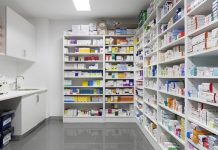The Federal Government is mulling a review of the Common External Tariffs, CET,on drugs because as the subsisting order is affecting the growth and progress of the pharmaceutical industry, The Nation reports.
The Ministry of Health and the Ministry of Investment, Trade and Industry are coordinating the federal government’s bid to reverse the CET, which has been widely criticised as unfair to the Nigerian pharmaceutical manufacturing industry.
The Economic Community of West African States, ECOWAS, CET, which implementation kicked off in 2015, reduces import duty tariff on finished pharmaceutical products to zero per cent compared with the five to 20 per cent duty on raw and packaging materials respectively. This scenario hugely favours importation to the detriment of local production.
Nigeria accounts for about 75 per cent of the region’s pharmaceutical manufacturing with Ghana accounting for about 20 per cent, as against other sub-regional countries that depend mostly on importation.
This development has prompted stakeholders to impress it on government to take measure to protect the local industry by invoking the Import Adjustment Tax of the CET, while working on a medium to long-term review of the agreement.
Minister of Health, Prof. Isaac Adewole, said Nigeria has written a letter to the Ecowas seeking a reversal of the CET as it relates to the pharmaceutical industry, noting that the CET undermines the huge investments that had been made in the Nigerian pharmaceutical industry.
He said: “It doesn’t make sense to allocate higher tariffs to raw pharmaceutical materials, it doesn’t make sense, government is looking at the reversal.”
Adewole recently undertook factory tour of the N9 billion World Health Organisation (WHO)-standard new pharmaceutical plant of Fidson Healthcare Plc.
Adewole said the government would support the development of the pharmaceutical industry by patronising locally produced drugs and ensuring prompt payment for government orders.












